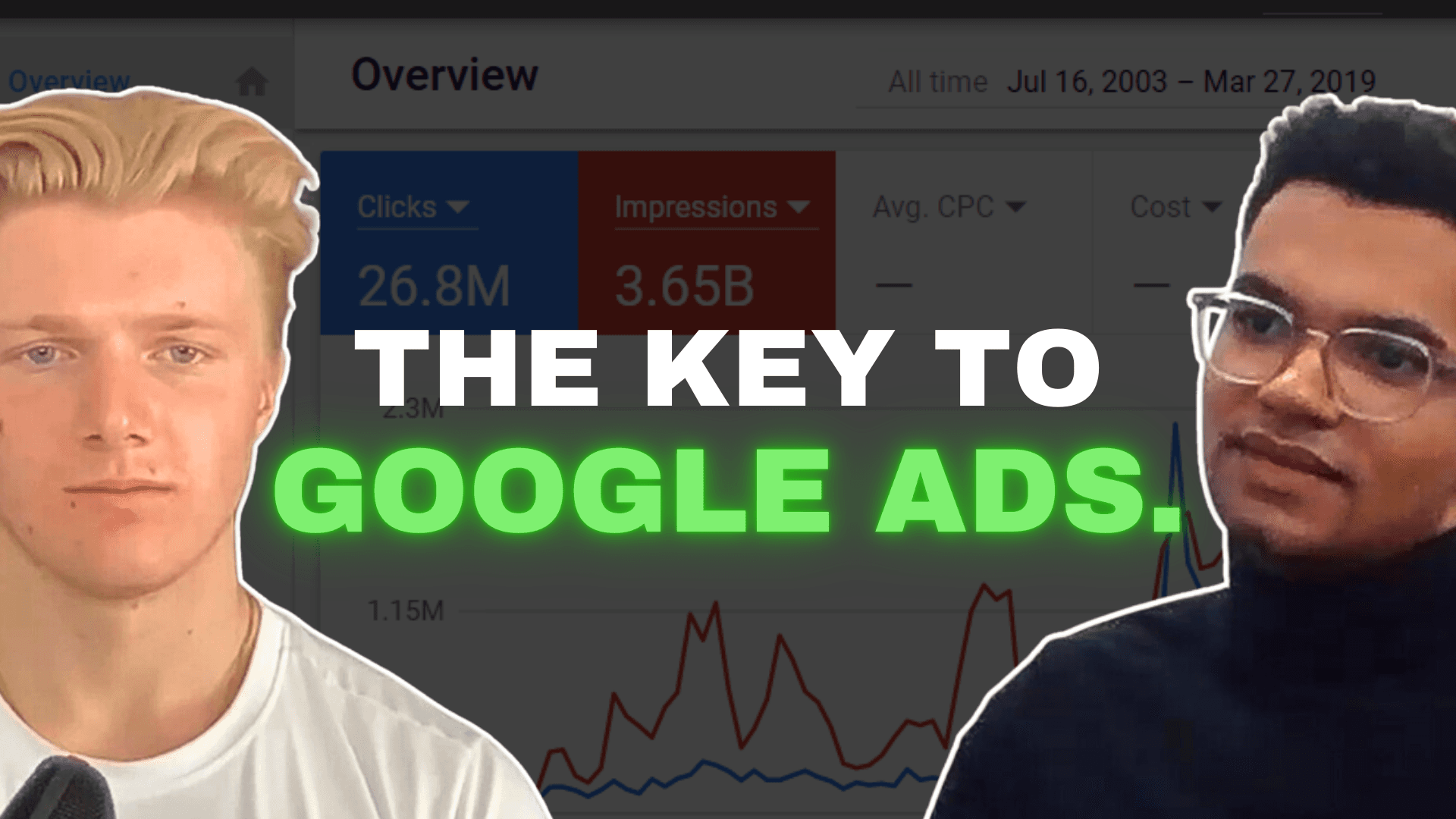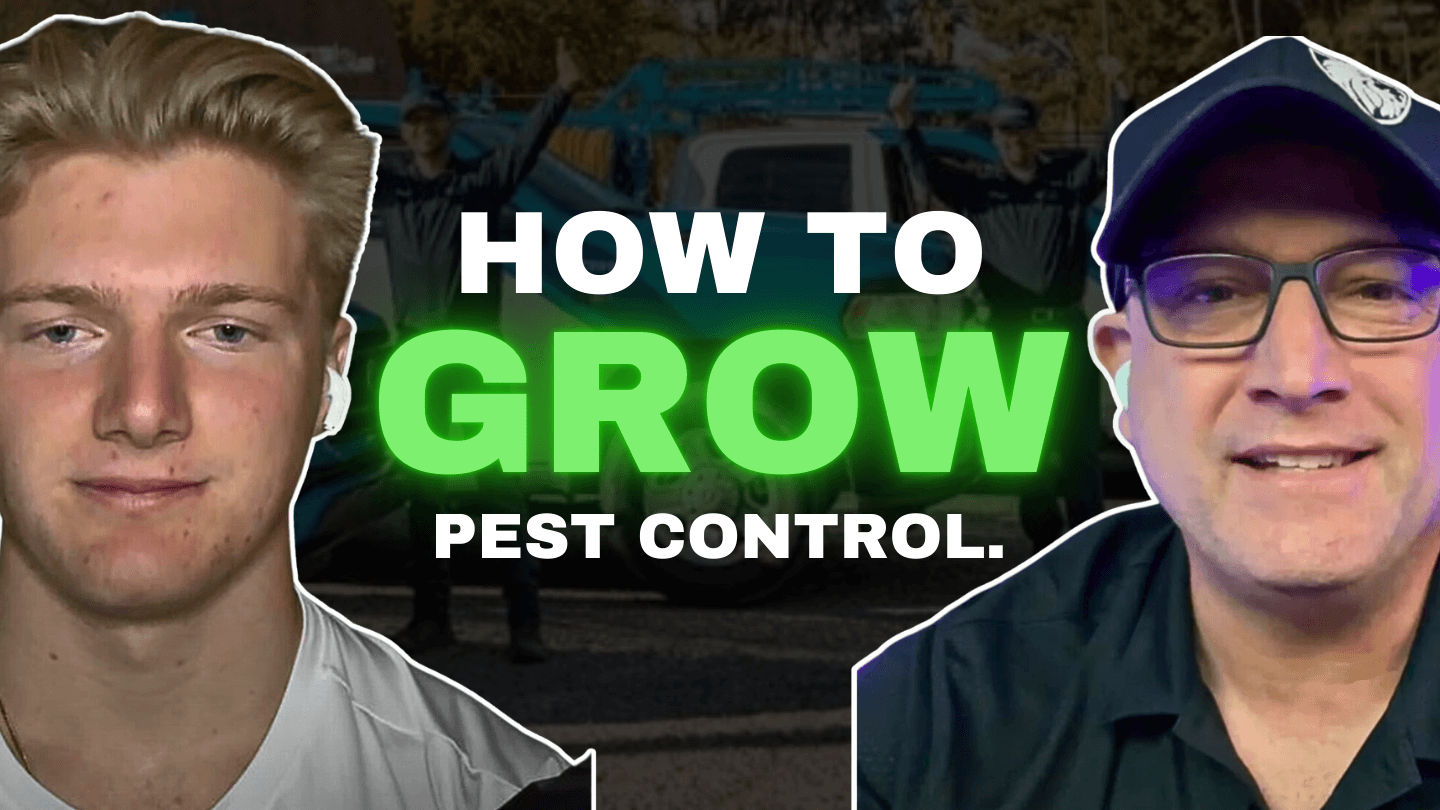Podcast
Raphael Sterk on The Key To Google Ads, Common Mistakes, and Working With a $14B Company.
Danny Leibrandt
Apr 19, 2024
Welcome to the Pest Control SEO Podcast! I'm Danny Leibrandt, founder of Pest Control SEO, where we grow pest control companies through the power of SEO. Today, I'm thrilled to have Raphael Sterk, co-founder of Pest Ads Agency, join us. Raphael is a true expert in Google Ads, especially for the pest control industry. He's worked with numerous successful companies, including global giant Rentokil, helping them generate over $60 million in sales revenue last year. Let's dive into his journey, the key to Google Ads success, common mistakes to avoid, and the thrill of working with a $14 billion company.
Raphael Sterk's Background and Journey
Raphael's journey into the pest control industry and Google Ads began with a role at Rentokil, a global leader in pest control. Before that, he worked with large marketing agencies like Publicis Groupe. His first in-house position was at Rentokil, where he noticed several fundamental issues with their Google Ads accounts. Despite being a massive company, Rentokil was making common mistakes, such as not using negative keywords and poor account structure.
Raphael shared, "When I came in and took over some of the accounts, I noticed so many of the fundamentals not being there. It doesn’t matter the size of the company; there are several things that they tend to miss out on."
Recognizing the potential for improvement, Raphael decided to stay in the pest control industry, leading to the creation of Pest Ads Agency, focusing exclusively on pest control companies. This niche focus allowed them to refine their PPC strategies and achieve impressive results across various markets, including the US, Europe, and South America.
Common Mistakes in Google Ads
One of the biggest issues Raphael identified was the structure and setup of Google Ads accounts. Many pest control companies make similar mistakes, such as:
Poor Website Structure
A common error is having a single contact form for multiple service types. Raphael explains, "Ideally, you want a contact form for each service type and then have tracking inserted for that. This way, you can track which service types are doing well and optimize based on that."
Inadequate Account Structure
Another frequent mistake is the improper setup of campaigns. Many companies lump all service type keywords into one campaign, making it challenging to identify which services are performing well. Raphael advises, "You want to have a generic campaign and then split the rest of the campaigns by the service type you're trying to push."
Neglecting Negative Keywords and Bid Adjustments
Using negative keywords and making bid adjustments based on performance are critical. Raphael notes, "People always forget about bid adjustments. For example, if you're targeting the whole of the USA and a lot of your money is going to a state where you're not getting any leads, you want to lower bids there and push more money towards states that are performing well."
The Importance of Testing in Google Ads
Testing is crucial in Google Ads to understand what works and what doesn't. Raphael emphasized the importance of a structured testing period, which involves:
Campaign Setup: Establishing a standard structure that includes brand campaigns, service-specific campaigns, and generic campaigns.
Keyword Segmentation: Using upper funnel, mid funnel, and low funnel keywords to cover a wide range of search intents.
Performance Monitoring: Analyzing lead sources, adjusting bids, and refining keywords based on performance data.
He explains, "The first month is generally for testing what works and what doesn’t work. You need to have enough budget that you are comfortable spending, especially in the first month where you don’t really expect results straight away."
Optimizing Google Ads for Maximum Performance
Continuous optimization is essential to maintain and improve the performance of Google Ads campaigns. Raphael recommends weekly optimizations, focusing on areas such as:
Keyword Performance: Identifying high-cost, low-performing keywords and reallocating the budget to better-performing ones.
Device and Location Adjustments: Adjusting bids based on device performance (e.g., mobile vs. desktop) and geographic location.
Search Term Analysis: Reviewing search terms to find new opportunities for keywords and excluding irrelevant terms.
He warns, "If you don’t optimize, you’re likely going to waste a lot of money showing up for irrelevant search terms and in areas where you don’t want to be shown."
The Role of Performance Max Ads and Campaign Structure
Performance Max (PMax) campaigns have been a topic of controversy, but Raphael sees value in them, particularly for the pest control industry. He suggests limiting PMax campaigns to about 20% of your budget and using them for generic campaigns rather than service-specific ones.
Raphael shared a tip: "You can exclude cities within locations for PMax campaigns, which helps optimize where your budget goes and can bring customer acquisition costs down."
The Budget Question
One of the most common questions Raphael gets is about budget. He advises that the budget should be something you are comfortable risking in the first month, knowing that immediate results are not guaranteed.
He explains, "If you’re spending an amount where you feel like, okay, I need results from this budget straight away, then perhaps it’s a bit too much. The first month is for testing."
Working with a $14 Billion Company: Insights and Experiences
Working with Rentokil has provided Raphael with unique insights and experiences. The significant budget allowed for extensive testing and experimentation, leading to the development of a standard account structure that works well across different markets.
Raphael enjoyed the global aspect of the job, stating, "Working with large budgets is great because you have room for testing. Also, because it’s international, you can work with other markets. We've worked with South America, Europe, the US, and Canada."
Final Thoughts: Essential Tips for Google Ads Success
For those starting with Google Ads, Raphael suggests focusing on:
Service Type Campaigns: Prioritize campaigns that push your services rather than brand campaigns, especially if your brand is not well-known.
Regular Optimizations: Conduct weekly optimizations to ensure your budget is being spent effectively and adjust based on performance.
Testing Period: Allocate enough budget for a thorough testing period in the first month to identify what works best for your business.
In conclusion, Raphael's expertise in Google Ads, particularly for the pest control industry, highlights the importance of a well-structured approach, continuous optimization, and thorough testing. By avoiding common mistakes and focusing on key strategies, pest control companies can significantly improve their Google Ads performance and achieve substantial growth.
For more insights and to connect with Raphael, visit Pest Ads Agency and schedule a meeting with his team. If you're looking to dive deeper into digital marketing, check out Raphael's book, "Digital Marketing Careers 101," available on Amazon.
Full podcast episode here:


